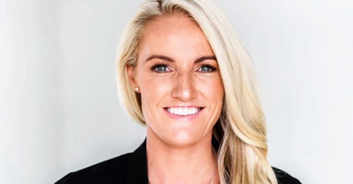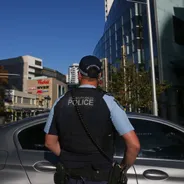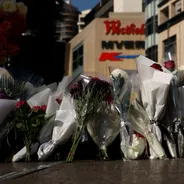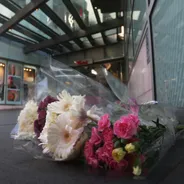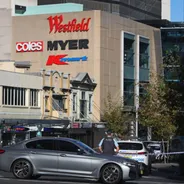A long-fought debate has finally reached something of a conclusion, with Facebook announcing on Wednesday that white nationalism and white separatism will soon be banned on both Facebook and Instagram. Facebook has repeatedly been criticised for allowing hate speech to flourish and, separately, was accused of allowing misinformation to spread across the website ahead of the 2016 presidential election.
For many anti-fascism activists, this is a welcome measure and a step in the right direction for a company which has previously tried to wash its hands of regulating information. Facebook had repeatedly claimed that is is a tech platform, providing entertainment, rather than a media publisher, providing news.
However, any sense that they can control their fate with semantics has long since disappeared and - as the third most-visited website in the world - Facebook has now taken action against the spread of alt-right hate speech.

“Today we’re announcing a ban on praise, support and representation of white nationalism and white separatism on Facebook and Instagram, which we’ll start enforcing next week,” Facebook stated in a blog post on Wednesday. “It’s clear that these concepts are deeply linked to organised hate groups and have no place on our services.”
Facebook has faced mounting pressure to take a stand against the spread of alt-right extremism following the attacks on two Mosques in New Zealand earlier this month. The attacks, which resulted in the deaths of 50 people, was partially livestreamed on the platform.
The perpetrator was active on the site, especially on the now-deleted "United Patriots Front" and "True Blue Crew" pages. He referred to the election of Donald Trump as the President of the United States as "[s]imply one of the most important events in modern history."

Having studied his online comments, a team from the Australian Broadcasting Corporation referred to them as "fragments and digital impressions of a well-travelled young man who frequented hate-filled anonymous messaging boards and was deeply engaged in a global alt-right culture."
“Our policies have long prohibited hateful treatment of people based on characteristics such as race, ethnicity or religion - and that has always included white supremacy,” the blog post, entitled “Standing Against Hate”, continues. Facebook then go into further detail on their evolving thought-process: “We didn’t originally apply the same rationale to expressions of white nationalism and white separatism because we were thinking about broader concepts of nationalism and separatism - things like American pride and Basque separatism, which are an important part of people’s identity.”

“But over the past three months our conversations with members of civil society and academics who are experts in race relations around the world have confirmed that white nationalism and white separatism cannot be meaningfully separated from white supremacy and organised hate groups,” they continue.
“Our own review of hate figures and organisations - as defined by our Dangerous Individuals & Organisations policy - further revealed the overlap between white nationalism and white separatism and white supremacy. Going forward, while people will still be able to demonstrate pride in their ethnic heritage, we will not tolerate praise or support for white nationalism and white separatism.”

Facebook have never allowed racial attacks on the platform. Clearly, though, many specialists in this field believe it is just as important that racists aren’t allowed to congregate and spread hate amongst each other. However, this poses a number of problems relating to civil liberties and freedom of speech.
Certainly, this new rule is to prevent the spread of fascist ideas and isn’t grounded in the sense that “my right to swing my fist ends where your nose begins” (a quote commonly credited to British political philosopher John Stuart Mill).
In quieter corners of the internet, people are being more candid. “For someone who cares more about freedom of speech and the free sharing of ideas, than what political stance people have,” states ThomPete on forum Hacker News, “it’s a sad day.” He adds: “However, at least Facebook now admits their political bias and people can make informed choices. And no I do not support white nationalism.”
Others, however, are arguing that Facebook haven’t done enough. Homophobia and transphobia is rife on the platform, leading some to believe that certain social groups are being prioritised over others.
“We also need to get better and faster at finding and removing hate from our platforms,” the blog post continues. “Over the past few years we have improved our ability to use machine learning and artificial intelligence to find material from terrorist groups. Last fall, we started using similar tools to extend our efforts to a range of hate groups globally, including white supremacists. We’re making progress, but we know we have a lot more work to do.”
“Our efforts to combat hate don’t stop here,” Facebook warns. “As part of today’s announcement, we’ll also start connecting people who search for terms associated with white supremacy to resources focused on helping people leave behind hate groups. People searching for these terms will be directed to Life After Hate, an organisation founded by former violent extremists that provides crisis intervention, education, support groups and outreach.”

Following the New Zealand mosque attacks, Prime Minister Jacinda Ardern stated that social networks are "the publisher, not just the postman" in reference to their “don’t shoot the messenger” response to the use of the platform to spread hate and misinformation. Facebook stated that, within 24 hours, it had blocked 1.2 million copies of the mosque attack video at the point of upload and deleted another 300,000.
“Unfortunately, there will always be people who try to game our systems to spread hate,” Facebook conclude. “Our challenge is to stay ahead by continuing to improve our technologies, evolve our policies and work with experts who can bolster our own efforts. We are deeply committed and will share updates as this process moves forward.”

The social media site announced the ban on the same day that white nationalist James Alex Fields pleaded guilty to hate crimes. Fields drove his car into counter-protestors, killing one and injuring dozens more, at the Charlottesville “Unite the Right” rally in 2017.
From a libertarian perspective, banning white supremacy and white nationalism is a fairly controlling move from Facebook. After all, it is currently a platform on which you are free to share ideas, even if they aren’t popular. However, perhaps certain “timeless” principles - like the right to bear arms, for example - simply aren’t cut out for the world we now inhabit.







